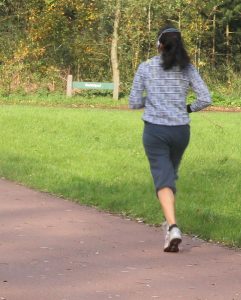A Day In The Life Of An Anorexic
 According to the National Institutes of Health (NIH) approximately 0.6% of the US adult population will experience anorexia nervosa in their lifetime. This translates into about 8 million people who suffer every day with this potentially deadly disease.
According to the National Institutes of Health (NIH) approximately 0.6% of the US adult population will experience anorexia nervosa in their lifetime. This translates into about 8 million people who suffer every day with this potentially deadly disease.
But most of those who are coping with anorexia do so in silence. Part of what perpetuates and maintains the disease is keeping all the negative feelings inside, hiding dysfunctional behaviors, and only showing outwardly that a person “has it all together.”
It’s no surprise that many anorexics are high achievers in various areas of their lives from academics to sports and this perfectionism helps them to fool others into thinking they are doing fine. Since living with anorexia is such a private, hidden affair, what is it really like to live a day in the life of an anorexic?
Three Things Keep Anorexics Occupied
There are three main thoughts that rule the thoughts of an anorexic all day long. First, they are obsessed with calories – how many calories they are not eating and how many calories they are burning. Secondly, they have to deal with the hunger. They have to find ways to distract themselves from the gnawing in their gut. Finally, Anorexics have to maintain the appearance that everything is okay and find ways to hide the fact that they are avoiding eating. Although the specific details of a day in the life of a particular anorexic may vary, these are the main activities that rule their day.
Anorexics Obsess About Calories, Weight, Food, Exercise, and Body
Upon rising, many anorexics immediately exercise. They may go for a run or they may do lunges while they brush their teeth. The point is they are obsessing about calories and their fear of getting fat. They are driven to do whatever they can to avoid gaining any weight. This is because anorexics have a distorted body image and are convinced they are disgustingly obese. For instance, in one post by a girl named Nicole(1) she describes how immediately upon rising she runs 6.5 miles, does 800 sit-ups, and strength training.
Many anorexics also weigh themselves often and compulsively worry about their weight on the scale. They will get on and off multiple times naked to ensure their clothing doesn’t influence their weight, as described in another post by Angelique(2). They will stare at their body in the mirror and pinch various areas thinking they are fat. From the very first moment they wake up, anorexics are caught in a mental battle with their disease.
Anorexics Grapple With Extreme Hunger
Next, anorexics have to deal with the extreme physiological hunger they are experiencing. They have to stay busy with school or work or sleep to distract themselves from the urge to eat. They may engage in behaviors to reinforce their willpower such as visiting pro-Ana (pro-anorexia) websites or looking at pictures of models. They will drink water or even eat very small portions of extremely low calorie foods. They may log all their activity and food eaten in a diary. As described on one website (3), the hunger can be extreme and make it difficult to even fall asleep. Anorexics use their iron willpower to force themselves to do what must be done to avoid food.
Anorexics Keep Up Appearances
Finally, anorexics have to be clever and keep up appearances. They have to come up with excuses that seem reasonable for why they don’t eat. For instance, as Angelique describes, she would go to the computer lab during lunch which seemed plausible since she was an honor student. Nicole had a system in which she convinced her parents she ate late at night long after dinnertime. Some anorexics will continually be on the run, perpetually busy so they can’t be bothered to eat. They also invest a lot of energy in achieving in other areas like academics to bolster their good image.
At the end of the day anorexics force themselves to sleep and then wake up the next day to engage in the cycle once again. The good news is that recovery from anorexia is possible. With anorexia treatment, the suffering can end.
Sources
(1) UC Davis
(2) Yahoo voices
 Eating Disorder Self Test. Take the EAT-26 self test to see if you might have eating disorder symptoms that might require professional evaluation. All answers are confidential.
Eating Disorder Self Test. Take the EAT-26 self test to see if you might have eating disorder symptoms that might require professional evaluation. All answers are confidential.